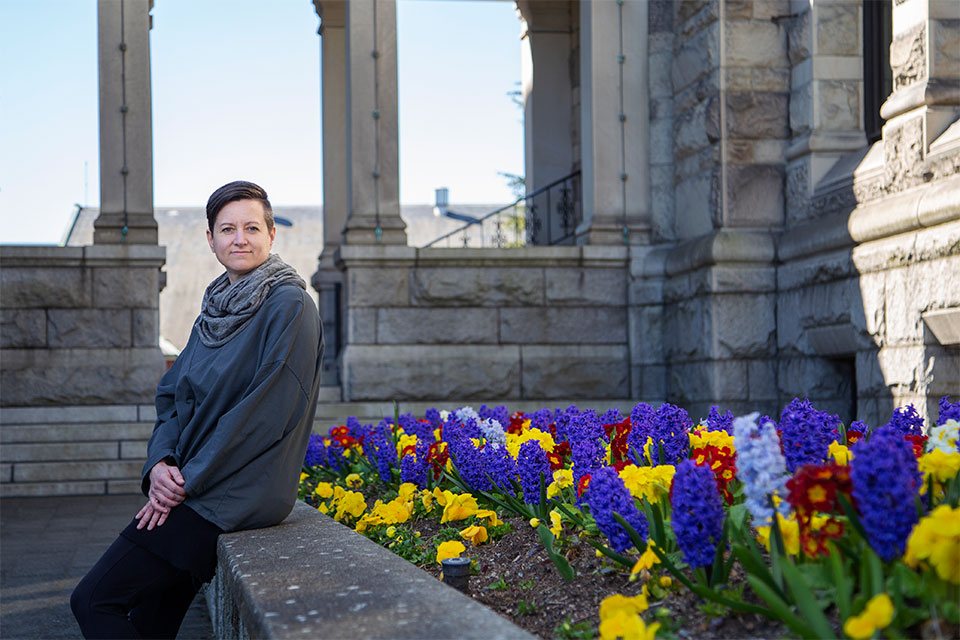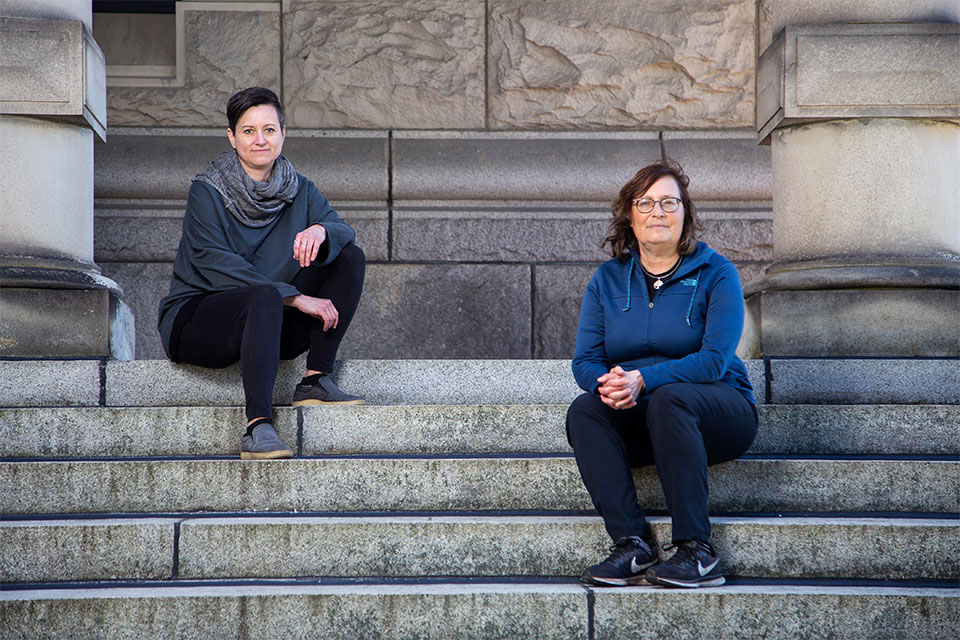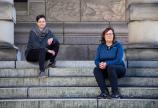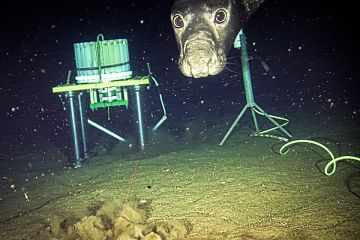Reducing harms from substance use
- Amanda Farrell-Low

Collaborative approach to promote health, health equity for people who use drugs
What’s in a name? For Co/Lab, it’s about more than summarizing the project’s official title—it embodies the collaborative approach at the heart of this project, housed at UVic’s Canadian Institute for Substance Use Research (CISUR).
Co/Lab, or the Collaborative Community Laboratory on Substance Use and Harm Reduction, brings together academics, drug user groups, service providers and policy-makers with the aim to promote health and health equity for people who use drugs. The scope ranges from conducting research on services like safer supply programs to providing a roadmap on how to bring equity into public health monitoring and running an active community of practice where experts of different kinds learn from each other.
“It is kind of a community-academic-policy triad,” explains Co/Lab co-lead Karen Urbanoski, CISUR scientist, public health expert and Canada Research Chair in Substance Use, Addictions and Health Services Research. “We’ve got this perfect platform for the exchange of info and ideas. We can be responsive to community when they say ‘we need this.’”
One way Co/Lab has been responsive is to potentially influence policy in response to issues brought forward by partners. For example, after seeing political opposition to services like needle exchange programs and supervised consumption sites in some communities, the team created research summaries detailing the evidence about their effectiveness. When the provincial government began purchasing hotels to house people during COVID-19, Co/Lab created a resource outlining how to implement harm reduction services in these types of residences—written mostly by community partners, including people with lived expertise who work in the sector.
It’s all being driven by the needs in the community for information and resources to improve the delivery of substance use and related services.
—Bernie Pauly, co-lead of the CISUR project and UVic nursing professor
“Part of the reason we are able to do this is because we have developed relationships with health authorities and people with lived experience over many years.”
Another need identified by the Co/Lab community was an evaluation of BC’s safer supply rollout, introduced last year due to concerns related to an increasingly toxic drug market, rising rates of overdoses and risks of COVID-19. Interim clinical guidance was issued to prescribers at the outset of the pandemic in March 2020 that allowed them to prescribe pharmaceutical alternatives to illicit drugs. The BC/Yukon Association of Drug War Survivors flagged the importance of evaluating the program to the co-leads. Now they and the Co/Lab team are part of a large research project, led by the BC Centre for Disease Control, looking at whether the program is meeting peoples’ needs and reducing deaths.
Urbanoski is also one of two UVic delegates tapped to attend Science Meets Parliament this year, where researchers across Canada convene in Ottawa to build stronger understanding between the scientific and political communities.
“Substance use is a major population health issue—policymakers and scientists alike are challenged with finding solutions,” says Urbanoski. “Participating in this government engagement will help me to further develop strategies for collaborating effectively with policymakers to improve population health.”

EdgeWise
A vital part of Co/Lab’s work has been creating a new way to look at harms related to substance use. In addition to measuring metrics such as drug- and alcohol-related hospitalizations and deaths, Co/Lab has created a framework to bring equity into the picture and look at other contributing factors.
Harms of substance use aren’t just caused by drugs, says Pauly. “They are caused by policies, laws and social dimensions of health, and we are working towards adding in or creating metrics that will get at some of those factors.”
Metrics include discrimination in housing policies, experiences of racism, distance to services of different kinds, or per capita police spending.
“We’re not proposing an ‘either/or’—we are saying that, in addition to counting people who experience harms using metrics like substance-related hospitalizations and deaths, we also need to measure the structures that affect their lives and health,” Urbanoski says. “We want to create evidence to help us develop these measures and put them into use. With this approach to monitoring, we will be better able to create systems that reduce health inequities.”
Co/Lab is funded by Health Canada, with sub-studies funded by Canadian Institutes of Health Research and the BC Ministry of Health.
Photos
In this story
Keywords: research, health, Canadian Institute for Substance Use Research, nursing, addiction, drugs, COVID
People: Karen Urbanoski, Bernie Pauly
Publication: knowlEDGE






